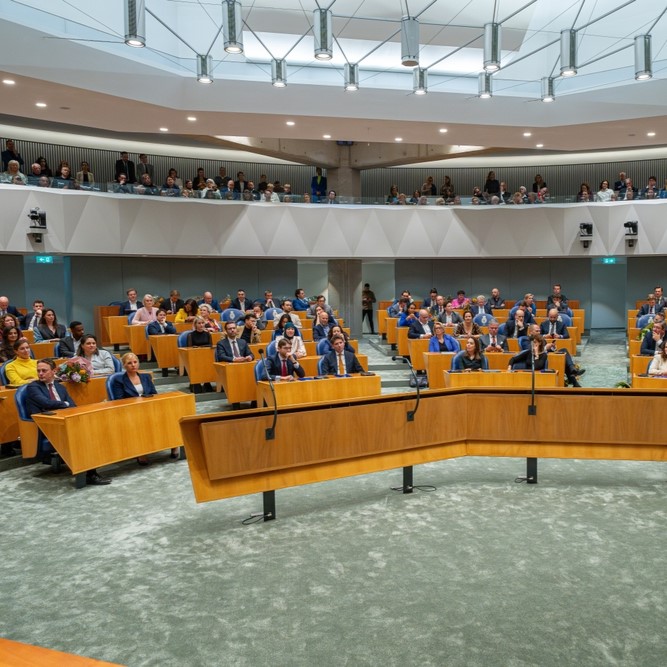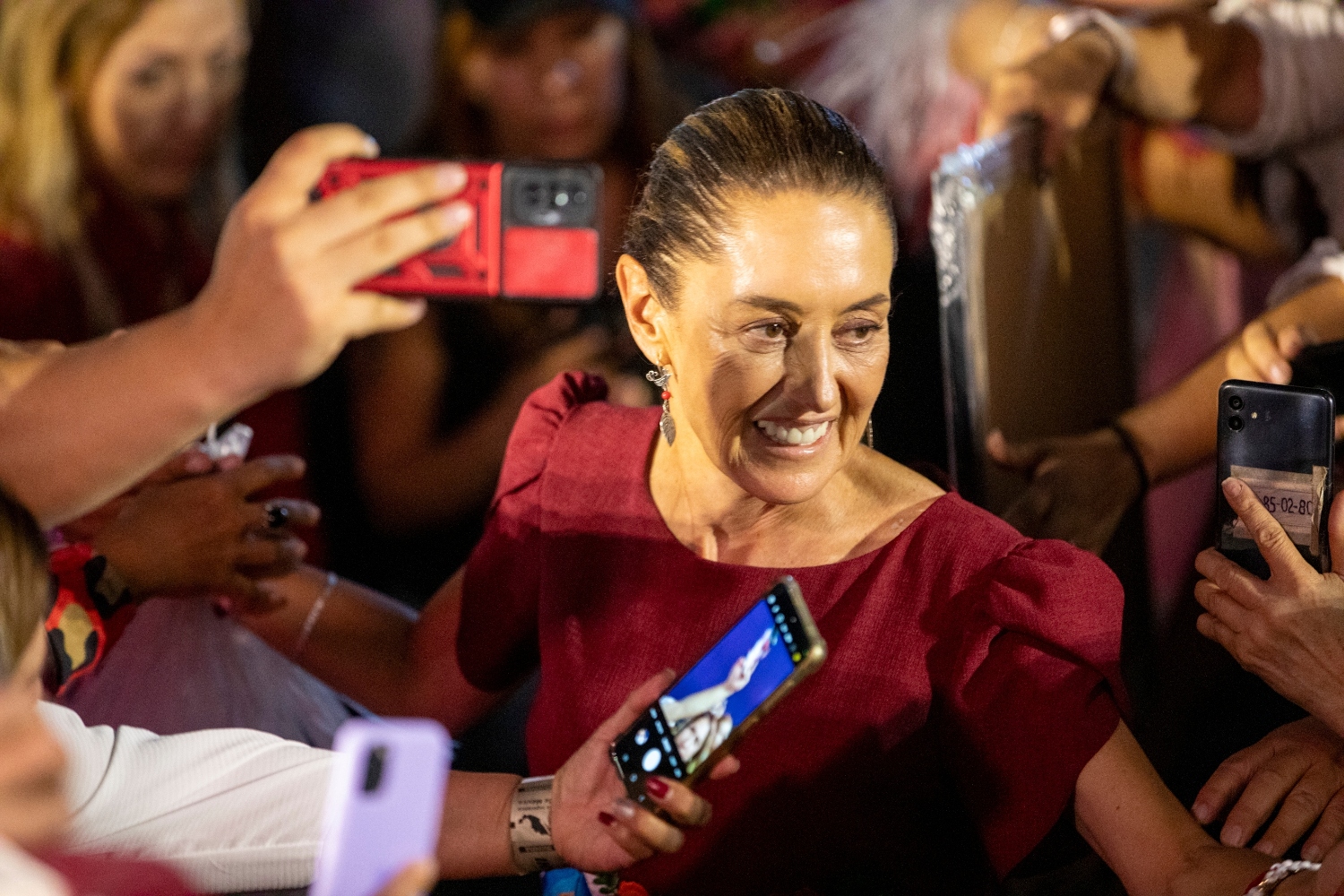These are some of the plans in the outline agreement reached by prospective coalition parties PVV, VVD, NSC and BBB. The VVD party in the Lower House of Parliament also consented yesterday evening to the agreement for the formation of a new government. The Parliamentary parties of PVV, NSC and BBB had already done so. So now there is an outline coalition agreement. But what does it mean for higher education and science?
The four parties want fewer foreign students coming to the Netherlands. This way, they hope to eventually save 293 million euros per year on higher education. They mainly want a restriction on migration to the Netherlands for Bachelor’s programmes, ‘except for degrees where there are labour market shortages, taking into account local conditions’, in the words of the agreement.
So no restrictions are planned as yet for Master’s programmes. The question is who will decide what the exceptions are and what local conditions will be taken into account. The parties say they want an administrative agreement.
They also want an enrolment limit for foreign students, ‘restrictions on obtaining the basic grant’ for EU students and an ‘increase in the tuition fees for non-EU students’.
Students
The sum of 1.4 billion euros has been reserved as extra compensation for the ‘bad-luck students’ who were at university when the student loan system was in force and as a result often have large student debts. That will probably be instead of the reduction in the interest rate on student debt, which was the previous intention.
But there will also be substantial cutbacks in student funding. The ‘slow student fine’ is set to return: students will have to pay 3000 euros in extra tuition fees if they exceed the nominal time for their Bachelor’s or Master’s degree by more than one year. The four parties estimate this will produce savings of more than 280 million euros a year in due course.
Student grants will be less generous too. Students will no longer get compensation for public transport costs when studying abroad. That applies both to exchange students and students who do their entire degree abroad. That will save about 30 million euros a year.
Another plan in the agreement: ‘The binding study advice rules will not be relaxed, and selection on admission will remain possible.’ So no change there.
Science
Big cuts are planned for science. The four parties want to scrap the funding for the national sector plans (215 million euros a year) in which universities make joint agreements on their education and research.
The Research and Science fund will have to make savings of 1.1 billion euros over the next few years. The National Growth Fund, set up to boost the knowledge economy, had already been suspended and will not be returning, saving an estimated 6.8 billion euros over the next 10 years.
Knowledge migrants and language
Foreign workers with specific expertise will find it harder to come and work in the Netherlands. ‘The qualification requirements for the highly skilled migrant scheme will be tightened up and the bar raised.’
According to the parties, migration for study reasons will automatically become ‘more selective’ if there are ‘more degree programmes in Dutch’. Once again, it is not clear who will be making the decisions: the universities themselves or the minister.
Elsewhere, the coalition agreement states: ‘Promoting language skills in Dutch will once again become a core task of the higher education institutions. The increasing use of English will be combatted, with strategic exceptions for degree programmes for occupations where there are shortages.’
Knowledge security
Knowledge security is also discussed. ‘The Netherlands must not be naive about the state actors that send or control people here for spying purposes,’ say the parties. ‘Measures will be taken to protect our know-how’.
‘Efforts to tackle digital threats from state actors and cybercriminals will be scaled up’, is one of the points. ‘Intensive collaboration between the government, security services, academia and the private sector will be encouraged.’
Funding system
The system for financing higher education will become slightly less dependent on the number of students. That is important for institutions facing falling student numbers, mainly in areas with shrinking populations.
The consequences will depend on the details, but the agreement says: ‘For the financing of higher education, we will switch partly to capacity funding as a way of maintaining degree programmes that are important for the labour market or region but face falling student numbers.’
What next?
Now the outline agreement has been finalized, someone has to be appointed as the ‘formateur’: the person who forms a new government together with the prime minister designate and the parliamentary leaders of the coalition parties. The final report by the ‘informateurs’ (the officials who investigate whether a proposed coalition will succeed) states that none of the four party leaders will be in the cabinet.
Which means Geert Wilders will not be the new prime minister. The name being mentioned in rumours the past few days is Ronald Plasterk. He was formerly minister of Education and of the Interior on behalf of the Labour Party and once made a bid to lead that party. Plasterk is a biologist who has won the Spinoza Prize, the highest scientific award in the Netherlands. He was recently in the news because he earned a lot of money from a patent that someone else may actually have had a right to.
In December, he was appointed informateur after PVV senator Gom van Strien resigned from the position when it was disclosed that his former employer, affiliated with Utrecht University, had reported him for fraud.

 House of Representatives. Photo Shutterstock
House of Representatives. Photo Shutterstock 

